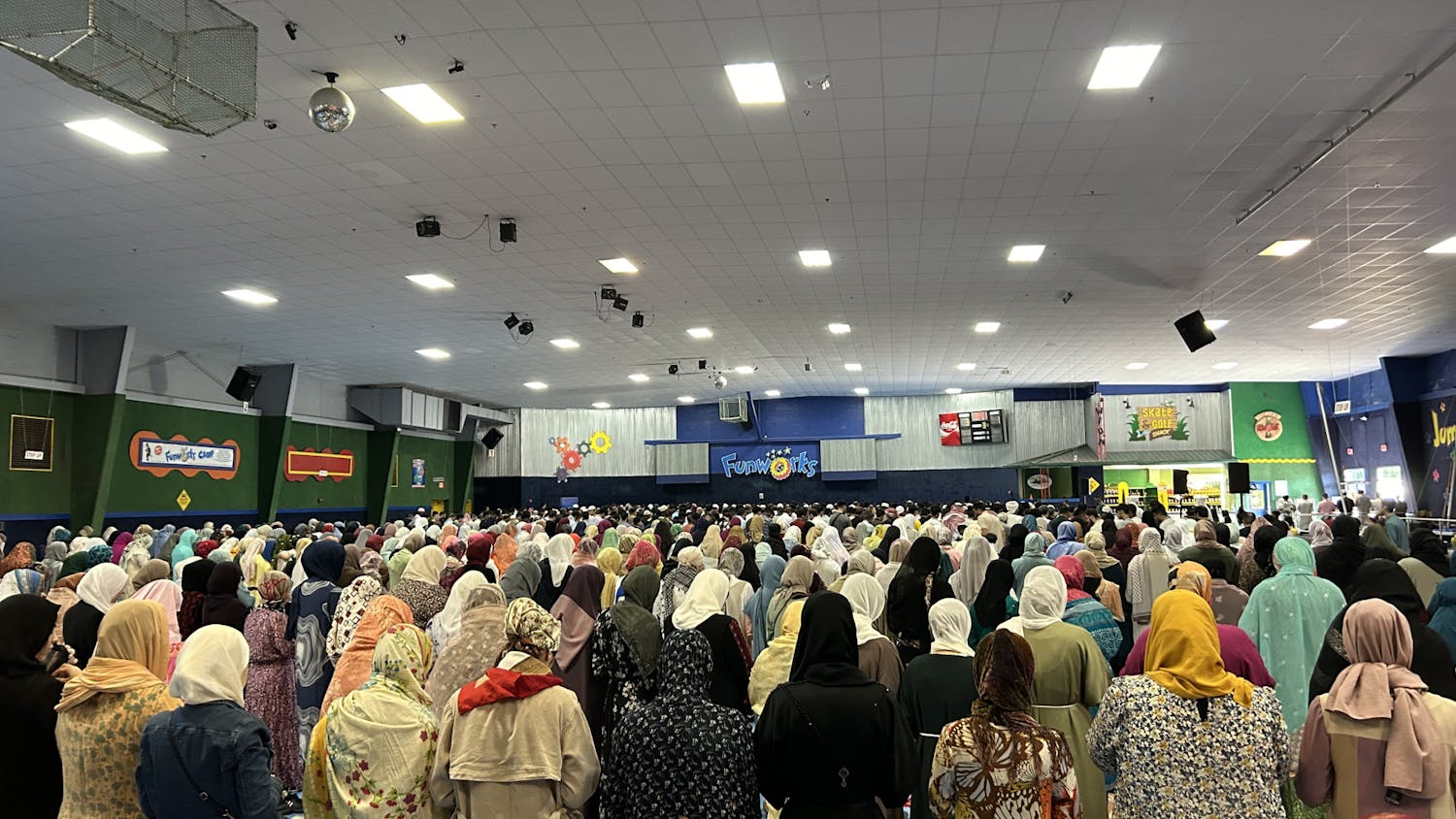The last time I attended Mass, I was 14 years old. It was Easter Sunday. As we left the church and wandered cow-like into the afternoon sun, my family was overtaken by a mob of Stepford Catholics who wanted everyone to share what they’d given up for Lent that year. Answers were fairly uniform and equal in negligibility (chocolate, soda, dessert, soda, whiskey, chocolate, chocolate, ad infinitum).
When it was my turn to recite what I abstained from, I couldn’t remember — not that it mattered, because no one had been able to resist the formidable power of processed cocoa. It was experiences like this that led me to abstain from the Catholic religion, which I now count, ironically, as my longest running Lent streak.
Fast forward 11 years — yes, gross, I know, I’m 25 — where I work as a language assistant at UF’s English Language Institute, or, as it’s more commonly known, the ELI. At the start of each semester, I receive a new partner and batch of students who are so globally diverse they actually stretch the word “diversity” to the brink of its semantic margins. I’ve had students from Senegal, China, Turkey, Korea, Kuwait, Qatar, Russia, Japan, Iraq, Venezuela, Saudi Arabia and the like. Roughly half of my students each year are Middle Eastern, and nearly all of the students from that region are practicing Muslims.
Though I have been with ELI for more than four semesters now, I have never before worked during the summer, which means I have never had to work during Ramadan. (Note: Ramadan rotates, so over time it takes place during every time of the year). Ramadan — for those who do not know — is observed through strict fasting, which means that from dawn until sunset there is no food and no drink — not even water.
This year, Ramadan started on Tuesday, July 9, and on that particular day, this is what awaited me in class: the kind of moroseness typically reserved for a Monday when students are still in mourning over their lost weekend. All the Muslim students, chap-lipped and bleary-eyed, barely lifted their heads to acknowledge my horrible pun: “Jesus, what’s eating you guys?”
Now, while I may be an idiot, I am typically not stupid. However, my attempt to lessen the gravity of tradition by making a pun about consumption with Jesus’ name sprinkled on top like a garnish was stupid.
Bad jokes aside, we moved through the day’s activity: a scavenger hunt where they literally ran from place to place trying to scrounge for data and statistics. Knowing they hadn’t eaten and couldn’t drink, I felt guilty for assigning what was essentially nothing more than a Scholastic-Olympic hybrid. I tried to empathize with them but could only conjure up the image of lax Catholics who laughed about lack of restraint in the face of chocolate.
“Starting tomorrow, I’m going to be fasting with you,” I said. One of my students looked at me like I was an idiot (and I clearly already stated that I’m not, remember?) and asked, “Why?”
“Traces of Catholic guilt,” I said. Crickets. “Look. I know you guys are tired and thirsty and hungry, and so I’ll make you a deal. I’ll be tired and hungry and thirsty, too. That way, you have the security of knowing that I wouldn’t ask you to do anything that I wouldn’t do myself. And if I have to be up here doing my job, you have to be over there doing your job.”
The class broke into murmurs of skepticism, and I was given advice on how to best begin my fast. I ate dinner that night at 8:30, as instructed, went to bed early and set my alarm for 5 a.m. so I could eat before sunrise.
The next day, I would learn just how closely I toe the line between sincerity and stupidity.





